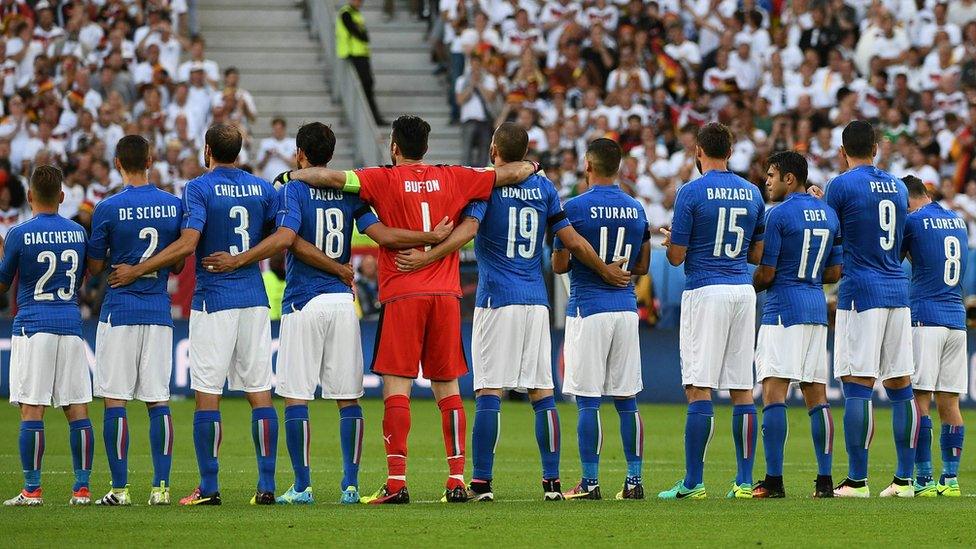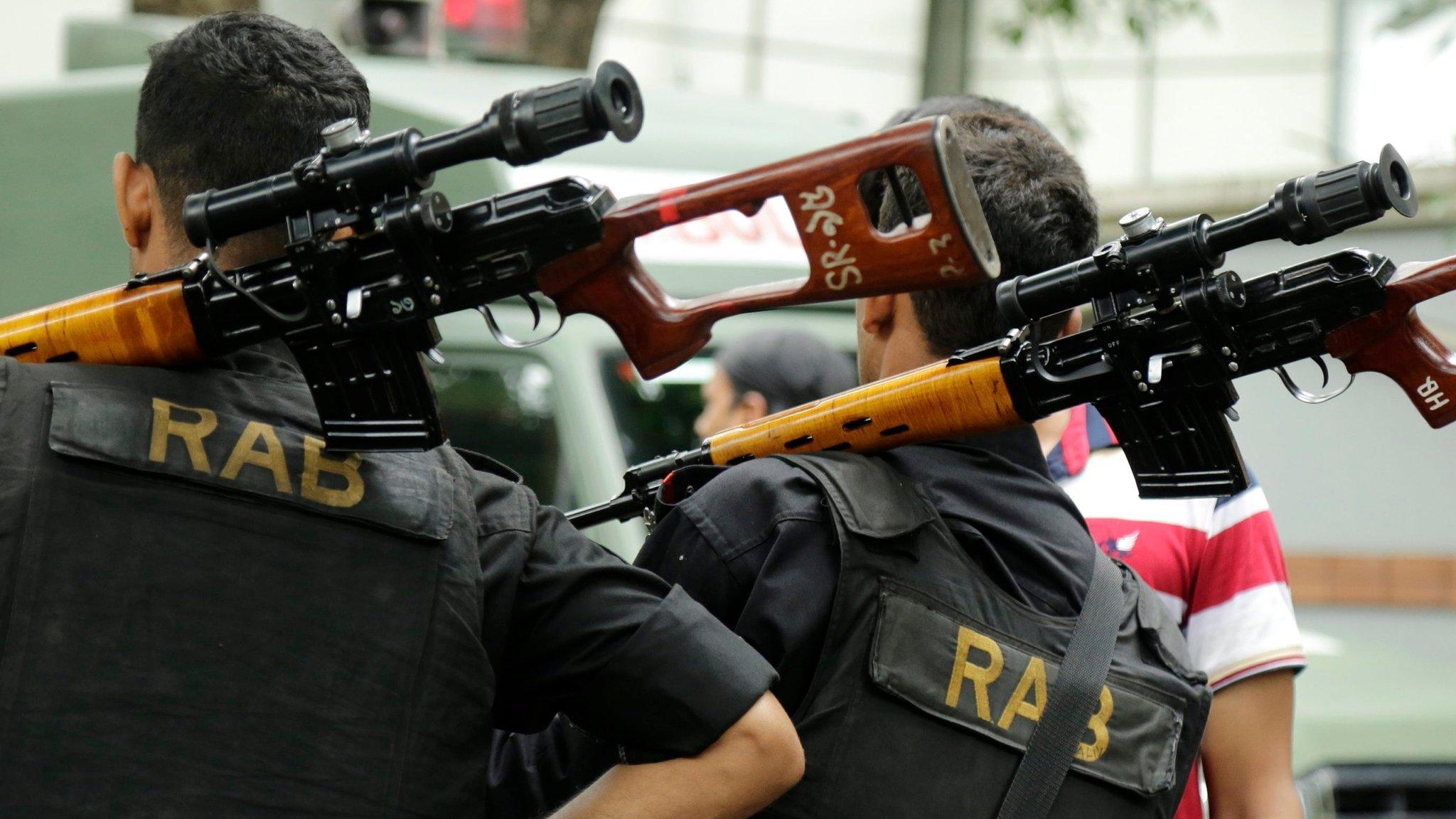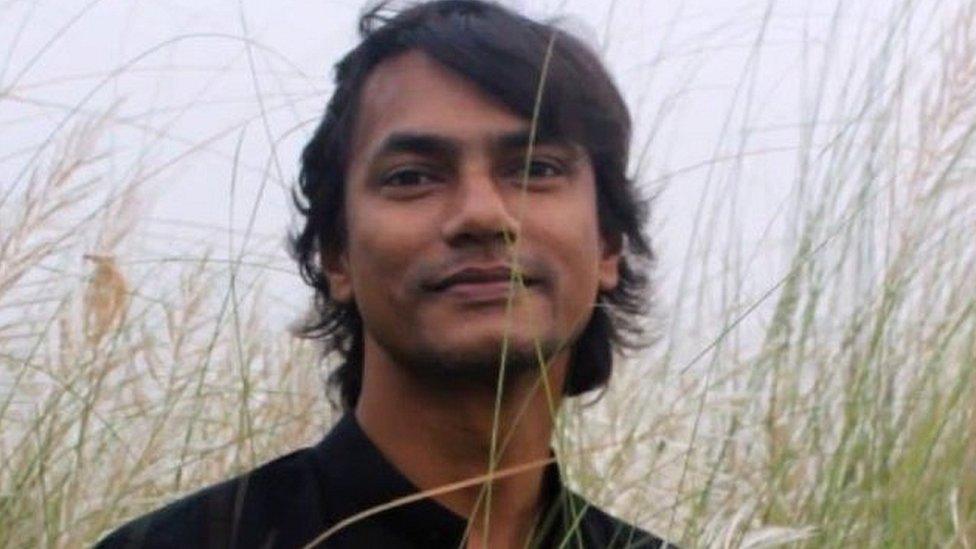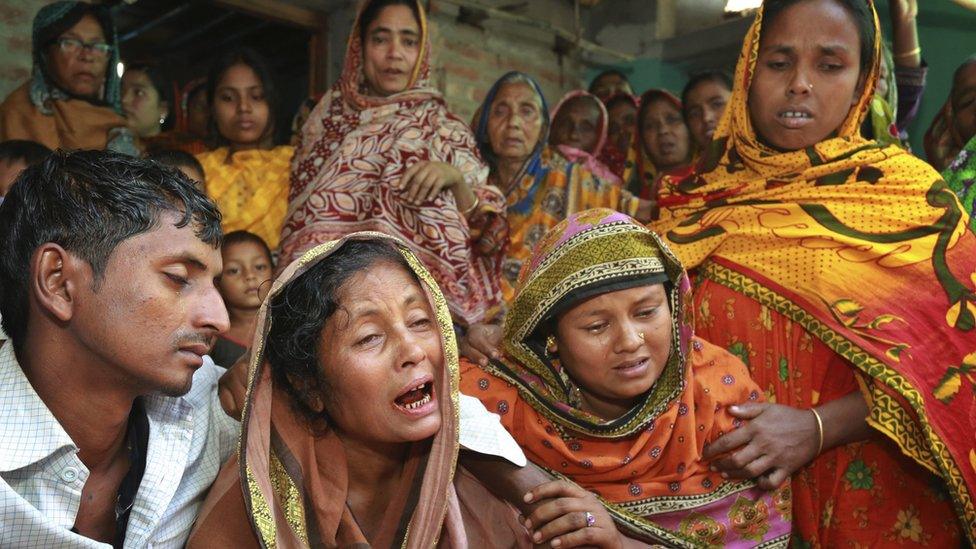Bangladesh mourns victims of Dhaka cafe attack
- Published
Dhaka cafe attack: "Foreigners were isolated and then singled out"
Bangladesh has declared two days of national mourning for those killed when Islamic militants stormed a cafe in the capital, Dhaka.
Twenty hostages, most of them foreign, were killed in the attack. Two police officers also died and 30 were injured.
Bangladeshi commandos rescued 13 people after a 12-hour siege, killing six gunmen and arresting another.
Nine Italians, seven Japanese, one US citizen and an Indian were among the dead. One Italian is unaccounted for.
Bangladesh's home minister said on Sunday that the attackers were not from the so-called Islamic State group, but belonged to a local militant group, which has been banned for more than a decade.
"They are members of the Jamaeytul Mujahdeen Bangladesh," Asaduzzaman Khan told the AFP news agency. "They have no connections with the Islamic State."
IS had earlier released photographs of the alleged attackers posing in front of a black IS flag.
Meanwhile, fresh accounts from survivors have emerged.
Bangladesh at crossroads as violence hits
Is extremism on the rise in Bangladesh?
Argentine chef Diego Rossini told how the gunmen burst into the Holey Artisan Bakery on Friday evening with bombs and machine guns.
"I can't still believe this happened," he said.
"It was like a movie, they pointed their guns at me and I could hear shots passing by. I was very, very afraid."
He said he escaped by running to the cafe terrace and jumping on to another building.

Who are the victims?
Nine Italians named by the Italian foreign ministry as: Cristian Rossi; Marco Tondat; Nadia Benedetti; Adele Puglisi; Simona Monti; Claudia Maria D'Antona; Vincenzo D'Allestro; Maria Rivoli and Claudio Cappelli
Seven Japanese. Five men and two women, four of whose names have been released by Japanese officials: Koyo Ogasawara, Makoto Okamura, Yuko Sakai and Rui Shimodaira
Two Bangladeshis named in national media as Faraaz Ayaaz Hossai, a student at Emory University in the US, and Ishrat Akhond
US citizen Abinta Kabir, also a student at Emory University
One Indian Tarishi Jain, 18, who was a student at the University of California, Berkeley

Who were the attackers? By Sanjoy Majumder, BBC News, Dhaka
A profile is now emerging of the attackers - six of them now dead, one in the custody of the authorities and being interrogated.
They are said to belong to well-to-do families and studied in private schools and universities, not in Islamic seminaries or madrassas, where many Islamist militant groups are thought to draw recruits.
Social media is now buzzing with former classmates who have recognised some of the attackers from the pictures put out by the so-called Islamic State.
Meanwhile, extra police checkpoints have sprung up across Gulshan, the upscale diplomatic neighbourhood where the Holey Café is located, as much of Dhaka has now been placed on alert. But many Bangladeshis feel it's a little too late, and they are wondering how a group of heavily armed men were able to walk into the café on Friday evening, unchecked.

If this bears out, it means that the Islamist violence that Bangladesh has experienced over the past few years has taken a new, deadlier dimension.
Announcing the two days of national mourning, Bangladeshi Prime Minister Sheikh Hasina vowed to fight terror attacks in the country.
"Anyone who believes in religion cannot do such acts," she said. "They do not have any religion, their only religion is terrorism."
The SITE Intelligence Group said the images released by IS identified the attackers by noms-de-guerre indicating they were Bangladeshi.
A statement on IS's self-styled Amaq news agency said militants had attacked a restaurant "frequented by foreigners".
Bangladesh has recently suffered a spate of murders of secular bloggers, gay activists, academics and members of religious minorities, blamed on Islamist militants.

The Italian football team stood in silence for the victims before their match against Germany in Bordeaux, France

- Published2 July 2016

- Published5 May 2016

- Published1 December 2015

- Published1 December 2015